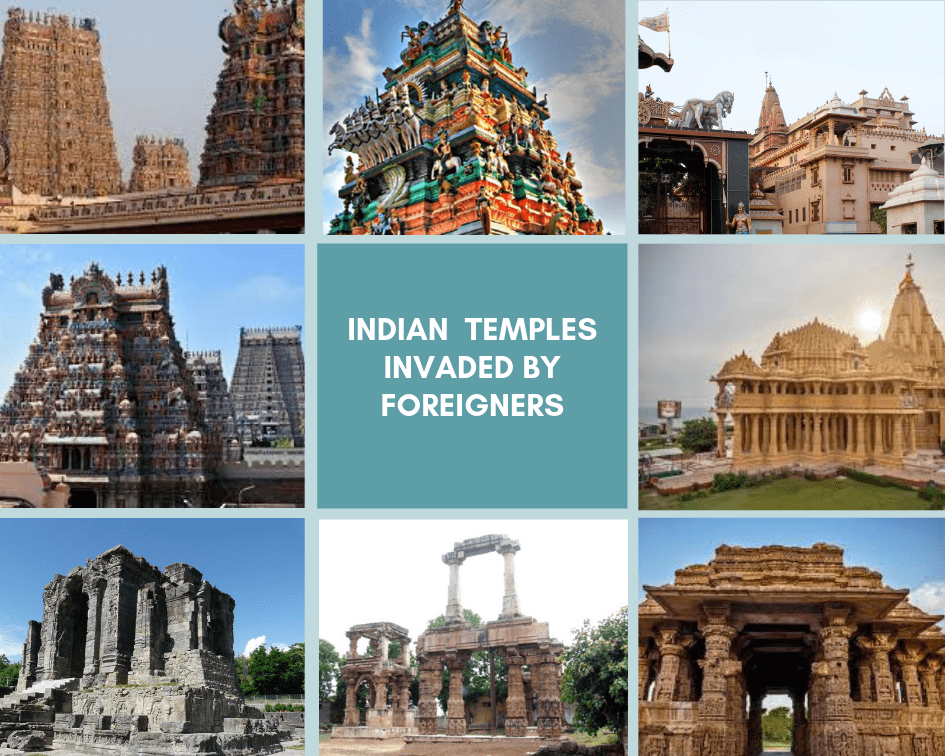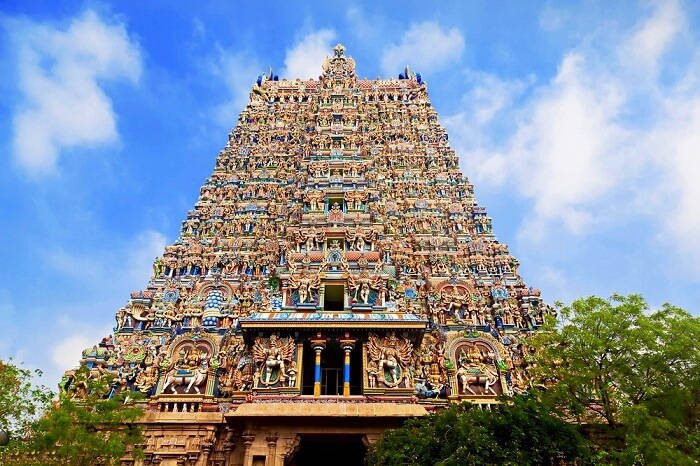The home to the Indus valley civilization , the Jambudweepa of ancient history , the Hind of Persians , the Al-Hind of Arabic texts , Tianzhu of the Chinese literature , Hindustan for the muslim conquerors and officially, formally and famously known as Bharata or India is a country in South Asia. Saying that India has a history as old as the history of mankind would not be an exaggeration. Indian history has seen events which has added Golden feather to the cap of India and it has also witnessed events which proved to be a black page in the history of subcontinent. In this article, we will be discussing top Hindu temples demolished by foreign invaders.
India once known as the Golden Bird for its enormous wealth , diverse culture and knowledge, have attracted various countries of the world towards itself ; either it be for the propagation of culture and knowledge or for the evil intention of the invaders to harm and destruct the possessions of this golden bird . Temples were the major source of the indian wealth and architecture and this was the only reason that there are evidences of a number foreign invasion , attack and destructions of a number of Hindu temples by invaders beginning from Mehmood of Ghazni to the Mughal Emperor Aurangzeb. Here is a chronological list of some of the temples invaded and destructed by foreigners :
1. CHAKRA SWAMI TEMPLE :
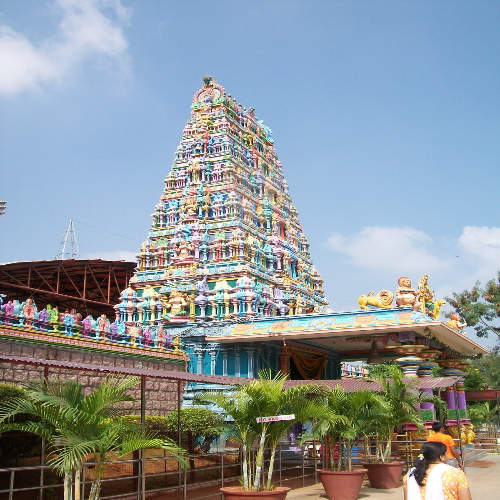
Location : Haryana , India
Ruler during attack : Not Known
Year of attack : 1014 AD
Invader : Mahmud Ghazni
Chakra swami temple is situated in Thaneshwar , Haryana. Thaneshwar is a historic town and an important Hindu pilgrimage centre . It is situated on the bank of Ghaghara River in the state of Haryana.
Chakra swami temple was invaded by Mahmud ghazni in 1014 AD. The then ruler of thaneshwar was afraid and ran away . Mehmood looted the temple and town according to his wish and sent the idol of lord Chakra Swami to Ghazni.
The present town of Thaneshwar is located on an ancient mound. The mound is 1 km long and 750m wide and is known as “Harsh ka Tila”.
2. Krishna Janmabhoomi Temple :
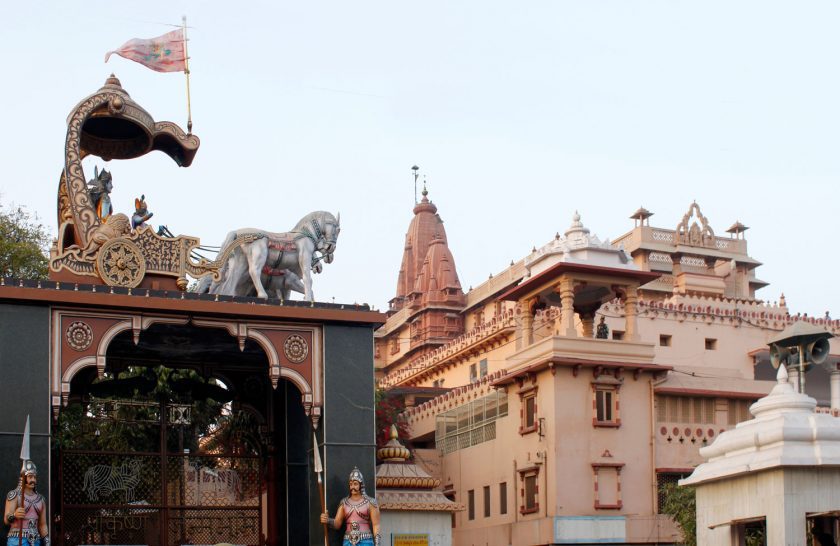
Location : Mathura , India
Ruler during attack : Not known
Invader : Mahmud Ghazni
Year of attack : 1017 or 1018 AD
Year of attack : 1017 or 1018 AD
The Krishna Janmasthan or Krishna Janmabhoomi is a temple complex or group of hindi temples situated in the Mallapura district of Mathura in Uttar Pradesh.
According to stories, a hindu diety Krishna was born here after his parents Vasudeva and Devaki were imprisoned by his maternal uncle Kans , who was a king of Mathura and were confined to the prison . The idol situated in tha garbha grih of the temple is of hindu god Krishna. It is said that the temple was established by lord Krishna’s great grand son Vajranabh. This temple holds a religious significance since 6th century BC.
This temple has also been a prey of the foreign invaders due to its wealth and prosperity . Krishna janmasthan was invaded by Mahmud Ghazni in 1017 or 1018 AD and he destroyed so many prosperous and wealthy temples and looted the riches of Mathura.
The new temple cmplex was built in 20th century around late 1950s with the help of the funding and financial help of industrialists like Birla and Dalmia.
3. SOMANATH TEMPLE :

Location : Gujrat , India
Ruler during attack : Bhima I of Chalukya dynasty.
Year of attack :1024-1025 AD
Invader : Mahmud Ghazni , Turkish Ruler.
The Somanath Temple , believed to be the first among the twelve jyotirlinga shrines of Shiva , is located in Prabhas Patan on the Western Coast of Gujrat. The time for the construction of the first shiva temple at somanath is unknown but according to the history available the first temple at the site has been possibly built by the Chalukya ruler Mulraja before 997 CE.
In 1024 (1025 according to some scholars), during the rule of Chaalukya ruler Bhima I , Mahmud Gazhni of Ghaznvidas attacked on the Somanath temple. He set upon Gujrat devastating the somnath temple and also broke the jyotirling situated in the Grabhgrih of the temple. He took away the the riches of about 20-25 million dinars. He looted all the treasures of the temple and also killed around 50000 hindus during his invasion.
After Ghazni , Alauddin khilji has also attacked on the temple and looted it. The temple has been reconstructed many times. The present building of the temple is based on the chalukya style of architecture. The present building was reconstructed on the orders of the first home minister Vallabh Bhai Patel and reconstruction was completed after his death in May 1951.
4. MODHERA SUN TEMPLE :

Location : Gujarata , India
Ruler during attack : Bhim I , Chalukya dynasty
Invader : Mahmud Ghazni
Year of attack : 1024-1025 AD
Modhera Sun Temple is located at Modhera Village of Mehsana district of Gujarat. It is a hindu temple which is dedicated to Surya , a Solar diety. It was built around 10th Century under Solankis. Solanki were the worshippers of Surya and they were believed to be the descendent of lord Surya. This temple was built by Bhim deva in the 11th century.
According to Puranas the region was called Dharamaranaya and the villege later come to be known as Modhera.
The temple was devastated by Mahmud Ghazni. Ghani took the original idol of the temple with him which was carved in gold.
The shrine of the temple was eventually destroyed by Ala-ud-din Khilji before the final construction and renovation of the temple.
5. RUDRA MAHALAYA :
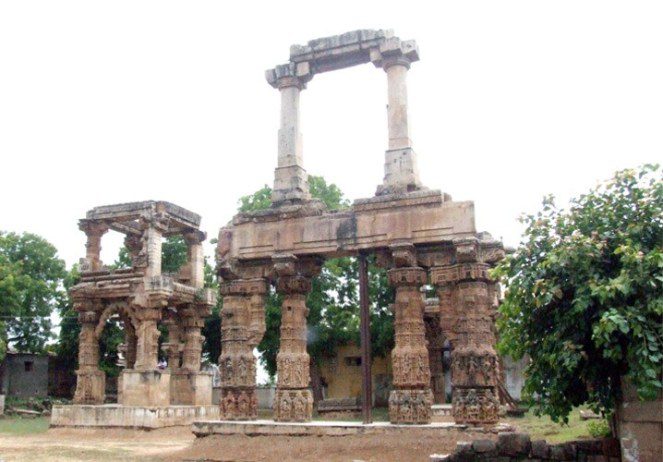
Location : Gujarat , India
Ruler during attack :
Invader :Ala-ud-din Khilji and Shah Alam I
Year of attack : 1296 AD and 1414 AD
Rudra Mahalaya (hindi meaning : रुद्र का विशाल घर) , is a temple complex situated at Siddh our at Patan district of Gujarat . The temple is also called as Rudra mal. Rudra Mahalaya’s construction started in 943 AD by Mulraja , a Chalukya king and the building was completed under the reign of Jayasimha Siddhraja in 1140 AD.
This hindu temple was plundered by Ala-ud-din Khilji , the second ruler of Khilji Dynasty. Khilji was an Orthodox muslim. He sent his army under Ulugh Khan and Nusrat Khan who devastated the Rudra Mahalaya temple in 1296 AD .
Rudra kahalaya was again attacked by Alam Shah I ,a muslim ruler and the western part of the temple was converted into a Jami Mosque in 1414 or 1415.
It had a very fine architecture. Two torans (porches) and four Stambhas (pillars) of the former central structure still stand along the western part of the temple.
6. MEENAKSHI TEMPLE :
Location : Tamil Nadu , India
Ruler during attack : Madurai nayak dynasty
Invader : Ala-ud-din Khilji
Year of attack : 1310-1311
Meenakshi Temple is a hindu temple locaed on the bank of Vaigai River , in the city of Madurai , Tamil Nadu .The temple is dedicated to Meenakshi , a form.of Parvati along with Shiva. The temple.is built in Dravidian Architecture.
Meenakshi Temple was plundered by Malik Kafur , a muslim commander in chief of Ala-ud-din Khilji in the early 14th century . He looted the temple and destroyed it and also the Madurai temple temple.
In the 16th century , Nayak ruler Vishwanath Nayankar furthur expanded and fortified it. The temple has been awarded with best ” Swachchh Iconic Place” in India on.October 1, 2017 under prime minister of India Narendra Modi’s flagship Swachchh Bharat Abhiyan.
7. CHIDABARAM THILLAI TEMPLE :
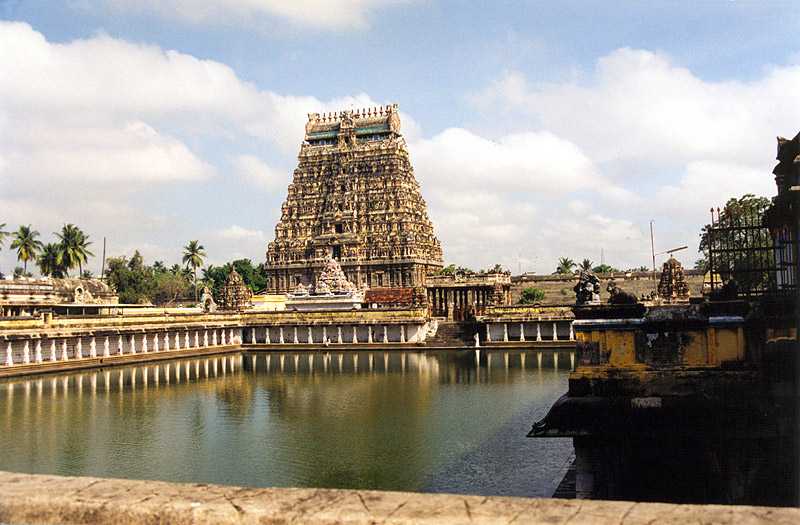
Location : Tamil Nadu , India
Ruler during attack : Pandya Ruler
Invader : Alauddin Khilji
Year of attack : 1311and 1320s
Chidambara Natraja Temple also known as Nataraja Temple or Thillai Natraja Temple , is a hindu temple dedicated to Nataraja – the dancing Shiva. It is situated in Chidambaram , Tamilanadu.
The name of the temple and city “Chidambaram” literally means “atmosphere of wisdom”. The architecture of temple is one of the best sample of the Dravidian Style . The inscription of the temple are in Tamil and Sanskrit. The idol of the Lord Shiva is presented as the Natraja performing the Anand Tandava ( Dance of delight) in the golden hall of the shrine.
The Chidambaram Natraja Temple was plundered by muslim Commander in chief of Alauddin Khilji in 1310 – 11.
The temple was again looted and devastated by the ruler of delhi sultanate in 1320s.
Presently, the temple architecture symbolises the connection between the art and spirituality ,creative activity and divine.
8. SRIRANGAM TEMPLE :

Location : Tamil Nadu , India
Ruler during attack : Chalunkya Dynasty King
Invader : Alauddin Khilji
Year of attack : 1310-1311
Srirangam is an island and a part of Triuchirappalli , the heart of Tamil Nadu. Srirangam is called as Thiruvarangam in Tamil. It is bounded by two rivers namely ,kaveri and its tributary Kollidam.
Srirangam temple is also known as Shrinivas temple and is dedicated to hindu dirty Vishnu (in reclining posture) facing south. It is said that the statue of the Lord was gifted to Vibhishan by lord Rama to take the idol to Lanka with him provided that he could not keep the idol on the ground . While travelling to lanka , Vibishana reached to the river kaveri where a festival (Utsavam) was going on and he set the idol on the Earth. After the festival was over the Lord refused to move but promised Vibhishan to bless him by facing the South (toward lanka) , hence the idol is in reclining posture.
The Srirangam temple was one of the temple town in tamilnadu that were looted and plundered during the Delhi Sultanate rule. Sriganganagar temple was plundered by Malik Kafur , commander of Alauddin Khilji in early 1300s. The riches of the temple were looted and the temple and the temple town were destroyed.
The temple was well reformed and many plans were executed for growth and people welfare during the Vijyanagaram empire king , Krishna Deva Rai.
9. MARTAND SUN TEMPLE :
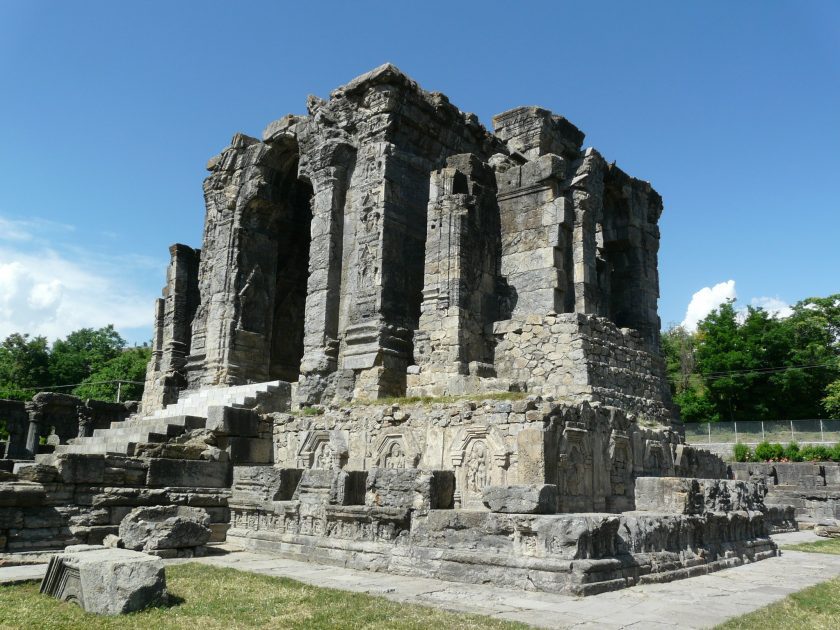
Location : Jammu and Kashmir
Ruler during attack : Karakota rulers
Invader : Sikandar Butshikan
Year of attack : Early 15th century
Once a part of the Karakota Empire (A Naga Kingdom) , the Martand Sun Temple is located give miles away from Anantnag in Jammu and Kashmir. The Martand Sun Temple is a hindu temple and is dedicated to the solar diety Surya. Martand is a Sanskrit synonym for Sun of Surya.
The temple was built by Lalitaditya Muktipada , the third ruler of the Karakota Dynasty in 8th century CE. The tmple represents one of the best specimen of the Kashmiri architecture . The Kashmiri architecture blends in itself , the Ghandharan , Gupta , Chinese ,Roman and Greek forms of architectures.
The Martand Sun temple is one of the temples in the list of temples invaded by foreigners . The temple was invaded by Muslim ruler of Shah Miri Dynasty , Sikandar Shah Miri popular known as Sikandar Butshikan. In the early 15th century Butshikan (literal meaning ; But means idol band Shikan means Destruction or destructor) completely destroyed the Sun temple.
The temple can be seen in various bollywood movies namely Aandhi (1975) and Haider (2014).
The Martand Sun Temple is a site of national importance in Jammu and Kashmir. The temple has secured a position in the list of centrally protected monuments.
10. RAM JANAMBHOOMI :
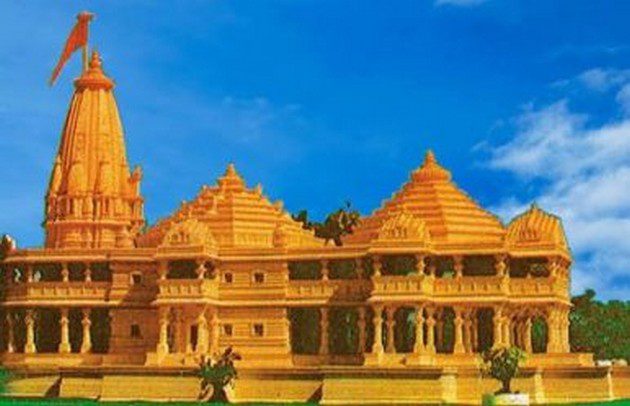
Location : Uttar Pradesh , India
Ruler during attack : Not known
Invader : Babaur
Year of attack : 1528
A major point in the election manifesto of all the political parties of India singh unknown number of years, the Ram janmabhoomi or Ram janmasthan temple is said to have located in Ayodhya , Uttar Pradesh.
According to Ramayana , Lord Ram , the seventh avatar among the Dash avtar of Lord Vishnu was born in Ayodhya at the bank of the river Saryu.
Ayodhya dispute is one of the most famous political , historical and socio-religious debate of India which is based on the argument that the site of the temple was where the Babri Masjid once stood also that the Mughal rulers destroyed the temple and built a mosque in place of the temple.
According to local hindus of Ayodhya the temple was destroyed by Mir Baqi , commander if Mughal Emperor Babur around 1528 and a mosque was built in its place during 1528-29 a d was named as Babri Masjid. Although no historical evidence are found to proof this belief as true.
The Babri masjid was demolished by Hindu nationalist in 1992. Since then Ayodhya dispute and Ram.mandir debate has played a major role in the state politics of Uttar Pradesh and Central politics of India .
11. VISHWANATH TEMPLE :
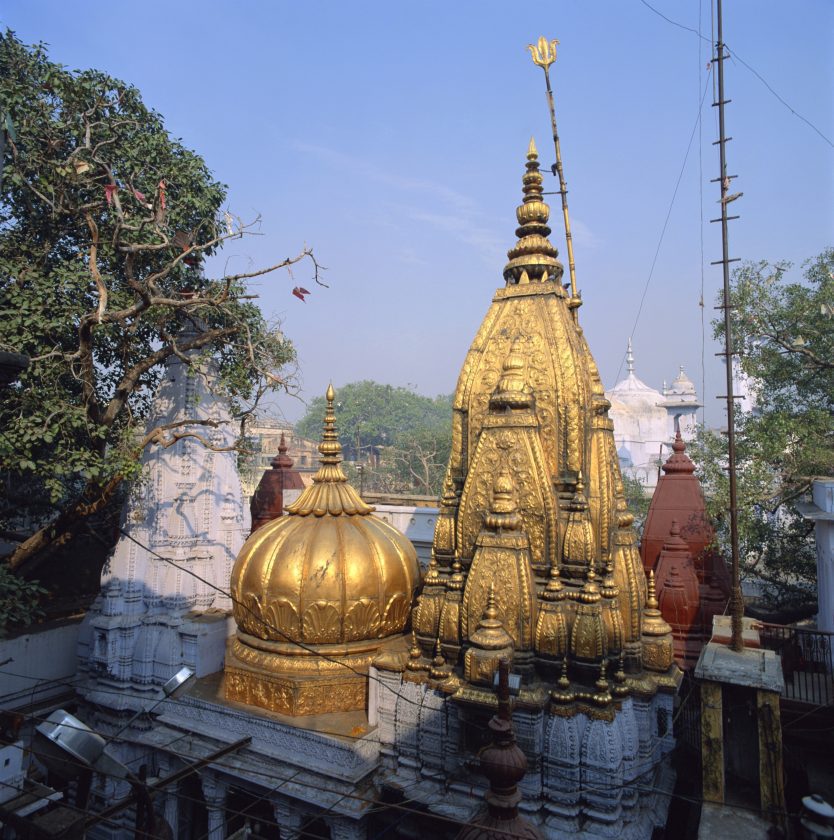
Location : Uttar Pradesh , India
Ruler during attack : Not Known
Invader : Qutub-ud-din-Aibak , Sikandar Lodi and Aurangzeb .
Year of attack : 1194 CE and 1669 CE
Located in the religious capital of India and in the holy city of Kashi , the Vishwanath Temple is one of the twelve jyotirlings of Lord Shiva. Varanasi being the city of temple and Ghats jave attracted many of the people towards itself since time immortal. Varanasi is one of the oldest living city of the world and is called Shiva ki Nagari ( town of Shiva).
The Vishwanath temple is located in the godowlia region of Varanasi and stands on the western bank of the Ganga River. The original name of the temple was Vishveshwara meaning the Lord of the universe.
Historically the temple has been mentioned in the Kashi Khand of the Sakand Purana.
The temple has been destroyed many times. The original structure of the temple was destructed by Qutub-ud-din Aibak in 1194 CE when he was commander of Muhammad Ghori. The temple was again destructed by Sikandar Lodi.
The temple was built by Raja Todar Mal by the funding of Akabar , the third Mughal emperor and an unusually tolerant muslim ruler in 1585.
The temple was latest destroyed by Aurangzeb in 1664 CE. Aurangzeb was the sixth ruler of the Mughal Dynasty and was an Orthodox Muslim. Aurangzeb not only destroyed the temple but also built the Gyanvapi mosque in its place.
There are beliefs that lord shiva did not want Aurangzeb to touch himanshu hence he jumped into a well nearby which is still present in the temple complex.
The present structure was constructed in 1780 by Ahilya bai Holkar adjacent to the mosque. In the temple complex there is a seven feet high Nandi Bull facing the mosque as the original temple was in the place of the mosque.
Since 1983 , the temple has been managed by government of Uttar Pradesh . The kashi vishwanath temple receives around 3000 visitors on a daily basis.
It is said that Shiva himself blows the mantra of salvation in the ear of the people who die naturally in Varanasi and they are taken to Mount Kailash and not by Yama(the god of death).
12. TILBHANDESHWARA TEMPLE :
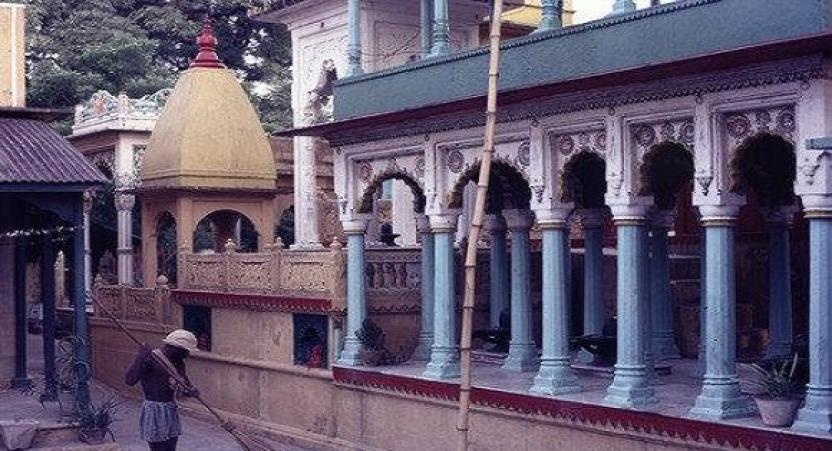
Location : Uttar Pradesh
Ruler during attack : Not Known
Invader : Aurangzeb
Year of attack : around 1660s
Tilbhandeshwara temple is one of the oldest and famous temple of lord shiva in the ancient city if Varanasi. The temple is dedicated to Lord Shiva and have a great religious importance. The temple.is situated in the Pandey Haveli region of Varanasi.
The temple was constructed in the 18th Century. It is said that the Shiva Linga in the temple emerged by itself around 2509 years ago. The temple is called Tilbhandeshwara (Til meaning Sesame seeds) because there was a Sesame filed at the site of the temple. The shiva linga in the temple increases by a size of a til (sesame seed) every year on the occasion of Shivaratri. The present height of the shiv ling is 3.5 feet.
The temple is believed to be attacked by Mughal Emperor Aurangzeb during the time of his invasion on the Kashi Vishwanath Temple. There are stories that when the ruler tried to break the shiva ling and attacked on it a huge blood stream started flowing from the ling which scared the emperor and he ran away.
A cut can still be seen on the linga ag the place where the emperor attacked .
Every year on the occasion of shivratri a proccession starts from the temple and takes a full round of the city and comes back to the temple. The Kashi Naresh is the chief officiating priest on shivratri every year.
13. KESHVADEV TEMPLE :

Location : Mathura , India
Ruler during attack : not known
Invader : Aurangzeb
Year of attack : 1670
Keshavadev temple is situated in the holy city of Mathura, Uttar pradesh. The city is believed to be the birthplace of Lord Krishna . The temple is believed to be build by the great grandson of Lord Krishna .
The temple was plundered by Aurangzeb in 1670 and was looted and destructed. He dismantled the temple completely and built Shahi Eidgah in the place of it.
14. JAGANNATH TEMPLE :
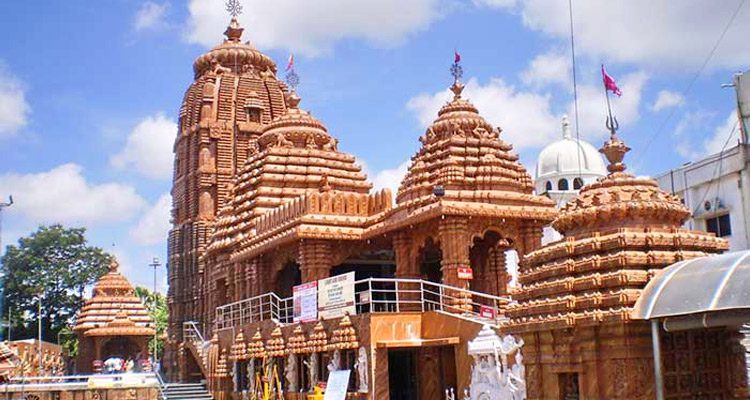
Location : Orissa , India
Ruler during attack : Ganga Dynasty ruker
Invader : Aurangzeb
Year of attack : Late 17th century
Shree Jagannath temple is located in Puri , Orissa. It is a hindu temple dedicated to Jagannath , a form of lord Vishnu .
The temple was rebuilt by an Eastern Ganga dynasty king Anantvarma Chodganga Deva.
The Jagannath temple is famous for its annual festival named Rathayatra . The image of Jagannath in the temple is made by wood unlike the stone and metal idol of the other hindu temples. The image is replaced every 12 or 19 years by an exact replica.
The temple is scared to the Hindus especially to the people of Vaishnava tradition.
Jagannath , Balabhadr and Subhadra are the tridev (trio of dieties)worshipped at the temple.
According to records the temple has been attacked plundered 18 times. Around late 17th century , Aurangzeb the sixth mughal emperor attacked the temple and ordered toh close the temple until his next order and warned the people that if the temple will be opened he will destroy the temple. The temple was reopened only after the death of Aurangzeb in 1707.
The temple.is managed under the Puri Shri Jagannath Temple (administration) Act ,1952 and the Shri Jagannath temple Ac 1955 was enacted to reorganize the administration of the affair of the temple and its properties.
The chief sevitor of the temple is Gajapati Maharaja Shri Dibyasingha Deb.
15. VIJAYA TEMPLE :
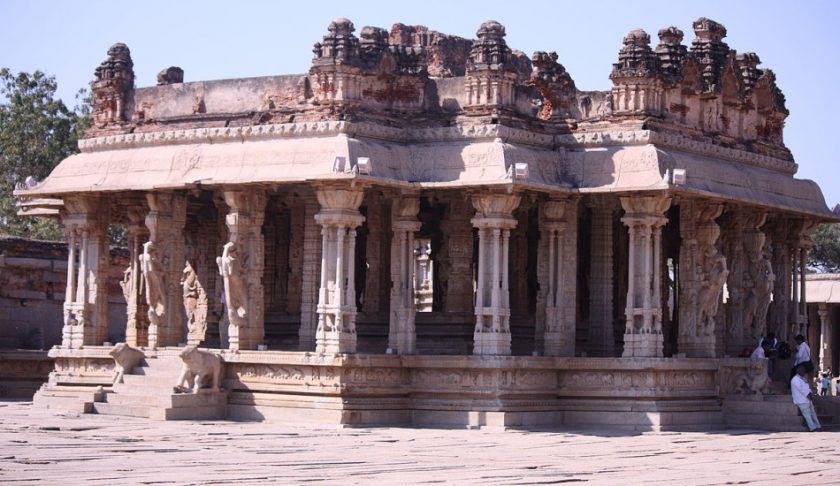
Location : Madhya Pradesh ,India
Ruler during attack : Not known
Invader : Aurangzeb
Year of attack : around 1658 to 1707
Vijaya temple also known as Beejamandal is situated in Jaikara Villege near Khajuraho around 60km from the capital city of Bhopal in Madhya Pradesh.
Vijay temple is now ruined and in the spot of it now stands the Beejamandal mosque. The mughal ruler Aurangzeb looted plundered and demolished the temple in 1658 – 1707 AD. The Bijamandal mosque was build using the ruins of the Vijaya temple.
The Vijaya temple.is now a ASI ( Archaeological Survey of India ) protected monument.
16. CHAUSATH YOGINI TEMPLE :

Location : Madhya Pradesh , India
Ruler during attack : not known
Invader : Aurangzeb
Year of attack : between 1658 to 1707
The Chaunsath Yogini temple is located in Jabalpur , Madhya Pradesh. Chaunsath Yogini temple is located near the Narmada river and about 5 km away from Jabalpur, MP.
Chaunsath yogini temple.is a home of Goddess Parvati along with her Chausath Yogini (female attendant ) along with Shiva . Among the chausath yoginis there can be found Ganeshini or Vainayaki . The Chausath yogini temple is the only temple where a feminine form of Ganesh can be seen.
There is a story that Aurangzeb once decided to kill everyone if he did not hear a sound once he put his sword on it. He went to Chaunsath Yogini temple and destroyed every yogini idol because he did not hear any sound once he put his sword but when he went to the idol of Shiva – Shakti and put his sword on it he started hearing sound of flowing milk and then he decided not to destroy the temple.

